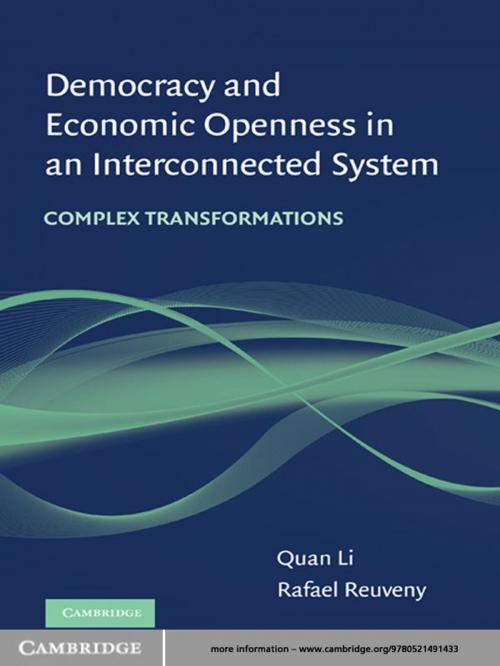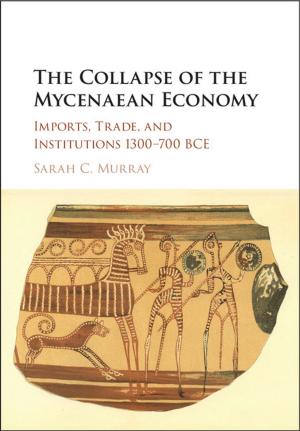Democracy and Economic Openness in an Interconnected System
Complex Transformations
Business & Finance, Economics, Nonfiction, Social & Cultural Studies, Political Science| Author: | Quan Li, Rafael Reuveny | ISBN: | 9780511699290 |
| Publisher: | Cambridge University Press | Publication: | July 31, 2009 |
| Imprint: | Cambridge University Press | Language: | English |
| Author: | Quan Li, Rafael Reuveny |
| ISBN: | 9780511699290 |
| Publisher: | Cambridge University Press |
| Publication: | July 31, 2009 |
| Imprint: | Cambridge University Press |
| Language: | English |
In this book, Quan Li and Rafael Reuveny combine the social scientific approach with a broad, interdisciplinary scope to address some of the most intriguing and important political, economic, and environmental issues of our times. Their book employs formal and statistical methods to study the interactions of economic globalization, democratic governance, income inequality, economic development, military violence, and environmental degradation. In doing so, Li and Reuveny cross multiple disciplinary boundaries, engage various academic debates, bring the insights from compartmentalized bodies of literature into direct dialogue, and uncover policy tradeoffs in a growingly interconnected political-economic-environmental system. They show that growing interconnectedness in the global system increases the demands on national leaders and their advisors; academicians and policy makers will need to cross disciplinary boundaries if they seek to better understand and address the policy tradeoffs of even more complex processes than the ones investigated here.
In this book, Quan Li and Rafael Reuveny combine the social scientific approach with a broad, interdisciplinary scope to address some of the most intriguing and important political, economic, and environmental issues of our times. Their book employs formal and statistical methods to study the interactions of economic globalization, democratic governance, income inequality, economic development, military violence, and environmental degradation. In doing so, Li and Reuveny cross multiple disciplinary boundaries, engage various academic debates, bring the insights from compartmentalized bodies of literature into direct dialogue, and uncover policy tradeoffs in a growingly interconnected political-economic-environmental system. They show that growing interconnectedness in the global system increases the demands on national leaders and their advisors; academicians and policy makers will need to cross disciplinary boundaries if they seek to better understand and address the policy tradeoffs of even more complex processes than the ones investigated here.















